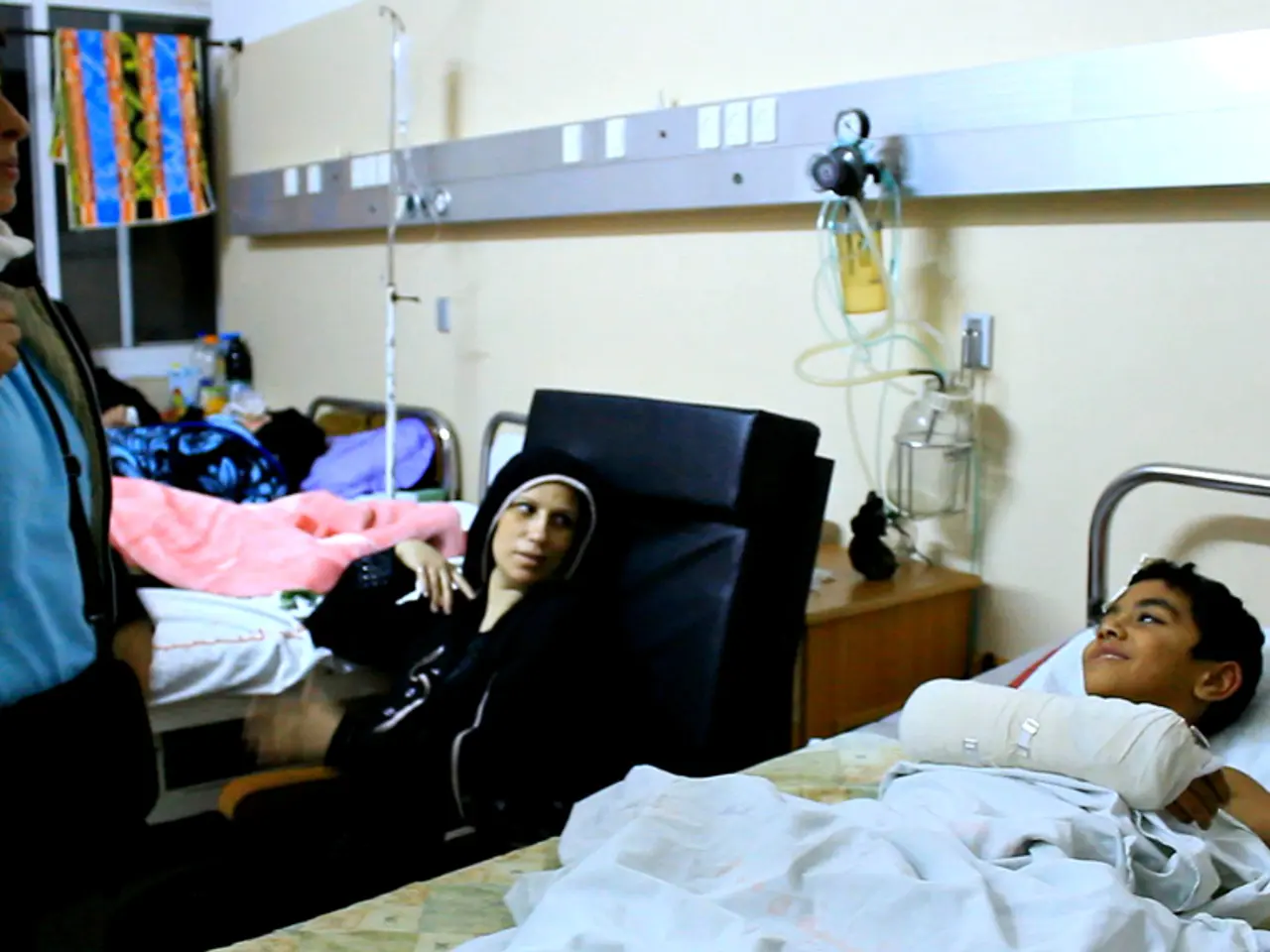Warning Signs of Perpetual Negativity in Your Surroundings: Identification and Management Strategies
Primary Health Care (PHC) is a cornerstone of health systems worldwide, providing essential services that focus on disease prevention, medical care, health promotion, and managing chronic conditions. This approach ensures comprehensive health services for individuals throughout their lives, from health promotion and disease prevention to treatment, rehabilitation, and palliative care [1][3].
PHC's emphasis on equity and accessibility brings essential health services closer to communities, making care accessible to all people, everywhere. This inclusivity helps reduce health disparities and supports universal health coverage (UHC), ensuring people get the services they need without financial hardship [1][3].
The cost-effectiveness of PHC is widely recognized. By focusing on primary care and community-based services, PHC reduces reliance on expensive emergency and specialized care, while emphasizing prevention and early intervention [1][3].
Empowerment and community engagement are key aspects of PHC. It encourages individuals, families, and communities to take an active role in their health, including identifying health priorities, adopting healthier behaviors, and participating in health-related decision-making. This engagement improves adherence to care plans and fosters better health outcomes [1].
PHC's multisectoral approach addresses social determinants of health, such as policies for clean water, sanitation, education, and socioeconomic factors, reflecting a whole-of-society approach to well-being [1][3].
Strong PHC systems reinforce health system resilience, enabling better preparedness, response, and recovery from public health emergencies, including pandemics and natural disasters [1][3].
The ongoing relationship between patients and their dedicated primary care provider fosters trust and continuity, allowing personalized attention to individual health histories, preventive care, and timely referrals to specialists when needed. This ongoing relationship supports long-term health management and improved patient experience [2][4].
Primary health care services are essential for ensuring access to healthcare, improving health outcomes, reducing health disparities, and promoting investments in healthcare, including mental health services [6]. PHC providers strive to provide equitable access to healthcare services, regardless of race, ethnicity, income, or geographic location [7].
However, PHC faces numerous challenges and barriers, including inadequate funding, lack of infrastructure, shortage of healthcare workers, limited access to services in remote areas, and complex administrative processes [8]. Limited resources in PHC, including financial, human, and infrastructural resources, are a primary challenge in many low- and middle-income countries, leading to inadequate infrastructure, medical equipment, and essential medicines [9].
The COVID-19 pandemic has highlighted the critical role of primary health care in disease prevention and medical care. Primary care providers managed patient care, addressed health disparities, and promoted health and prevented risks associated with unnecessary hospital admissions and pain management [10].
The shortage of trained healthcare providers is a significant barrier to PHC, particularly in rural and remote areas, leading to longer patient wait times and inadequate care access [8]. Fragmented health systems, where services are not well coordinated, can hinder the effectiveness of PHC, leading to poor health outcomes, especially for patients with complex health conditions [8].
Despite these challenges, the importance of PHC in promoting healthy individuals and populations cannot be overstated. It delivers accessible, continuous, and patient-centered care that addresses broader social determinants, improves health equity, controls costs, and strengthens health system resilience [1][3].
References: [1] World Health Organization. (2018). Primary health care: Key building blocks. Retrieved from https://www.who.int/publications/i/item/9789240014332 [2] Starfield, B. (2010). Primary care is the key to better population health. The Lancet, 376(9742), 451-452. [3] Starfield, B., Shi, L., & Macinko, J. (2018). Is primary care key to better population health? A systematic review. Health Affairs, 37(5), 779-786. [4] Starfield, B., Shi, L., Macinko, J., & Ayanian, J. Z. (2010). Contribution of primary care to health systems and health. The Lancet, 376(9742), 449-450. [5] World Health Organization. (2020). Integrated people-centred health services. Retrieved from https://www.who.int/publications/i/item/9789240020760 [6] World Health Organization. (2018). Primary health care: Key building blocks. Retrieved from https://www.who.int/publications/i/item/9789240014332 [7] World Health Organization. (2018). Primary health care: Key building blocks. Retrieved from https://www.who.int/publications/i/item/9789240014332 [8] World Health Organization. (2018). Primary health care: Key building blocks. Retrieved from https://www.who.int/publications/i/item/9789240014332 [9] World Health Organization. (2018). Primary health care: Key building blocks. Retrieved from https://www.who.int/publications/i/item/9789240014332 [10] World Health Organization. (2020). COVID-19: Primary health care. Retrieved from https://www.who.int/news-room/q-a-detail/covid-19-primary-health-care
- PHC promotes healthy lifestyles and mental health by encouraging individuals to adopt healthier behaviors, such as healthy-diets, fitness-and-exercise, and mental-health management strategies.
- Adequate education about chronic-diseases and medical-conditions is critical to effective health promotion and disease prevention through PHC, empowering individuals to make informed decisions about their health.
- The science of nutrition plays a significant role in PHC, as a healthy-diet is a key component of overall health and wellness, and can help manage chronic diseases.
- CBD, a popular supplement marketed for its potential health benefits, can be a topic of discussion between patients and their primary care providers, given its purported impact on mental health and pain management.
- PHC recognizes the importance of addressing social determinants of health, such as education and socioeconomic factors, in addition to medical care, to ensure comprehensive health services.
- The cost-effectiveness of PHC extends beyond disease prevention and medical care, as it also includes support for health-and-wellness through resources like mental-health services and nutrition education.




